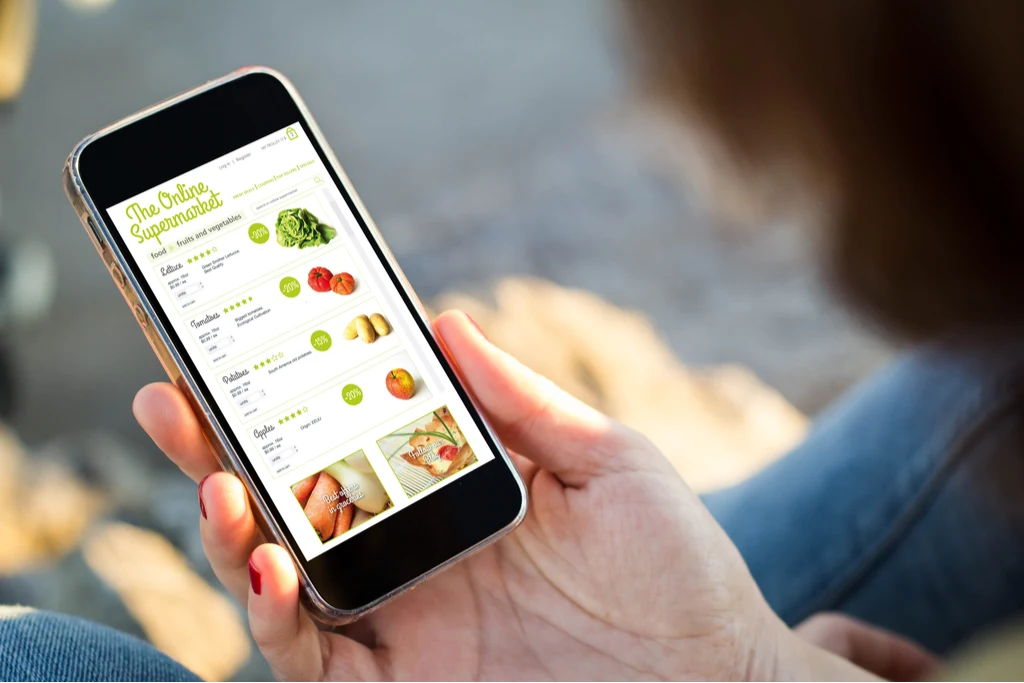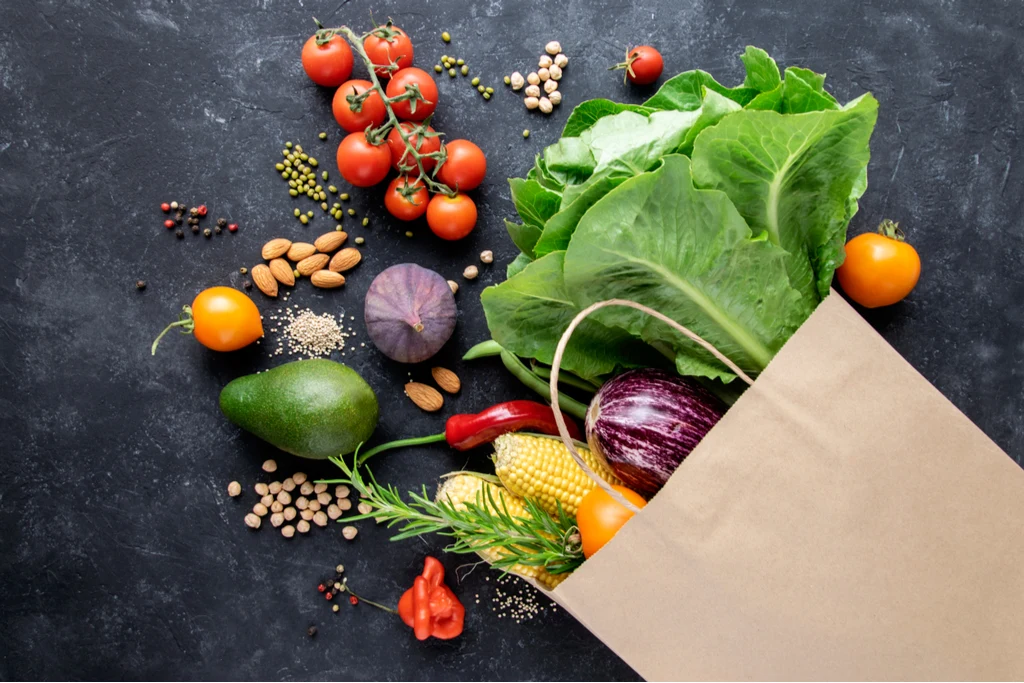20 Hacks To Help You Save Money On Groceries

July 12, 2022 - Updated July 12, 2022

Lately, we’ve been getting to the supermarket checkout and trying not to grimace when we see the final total.
The cost of living has taken a sharp increase, with the The Australian Bureau of Statistics saying the price of food has gone up 4.3% in the year to March 2022 and the official inflation rate has taken its biggest jump in years.
Our money isn’t stretching as far as it once was and a lot of people are feeling the crunch when it comes to putting food on the table - even more so for low-income households, students, part-time workers, large families or families that rely on one income.
While some things in life are nice-to-haves you can easily live without, food is a necessity, and knowing how to successfully eat healthy and do your grocery shopping on a budget can be key! Here are 20 tricks to help you get more bang for your buck at the checkout.

1. Make a weekly meal plan
Before you go shopping, make a plan of what meals you’re going to cook for the week. This makes your trip to the supermarket much easier and reduces the temptation or need to order a takeaway later in the week. You’ll also save time and money on petrol if you don’t have to make any extra trips!
2. Make your meals from scratch
For some people, a meal plan includes pre-made meals or meal kits. While these are great for convenience, they tend to be more expensive than if you cooked from scratch.
If cooking doesn’t come naturally to you, try and seek out recipes that are beginner-friendly, such as one-pot dishes or easy and nutritious salads you can throw together with minimal prep.
3. Check out what’s on special in advance
Look online before you hit the shops to check out any weekly specials, especially in the fresh produce and meat departments if you eat meat. You can then base your meals around these cheaper items, as opposed to choosing your meals only to arrive at the supermarket and realise the ingredients you need will stretch your budget.
4. Double check what you’ve got
Before you do your weekly shop, check your fridge, freezer and pantry to avoid buying things you already have or throwing out food that will go off soon. If you have any items left over from the previous week, try to base meals around those ingredients first.
Keeping an eye on your fresh produce during the week is also a good idea. If something is starting to go off, switch up your meal plan to use that ingredient first. Throwing out food is like throwing your money away!
5. Buy seasonally
The same principle applies here! Fresh produce that’s in season tends to be cheaper and taste a whole lot better than fruit and veggies that are out of season. Keeping a list on your fridge of what’s in season throughout the year can also make buying and planning easier.

6. Make your list and stick to it
One of the easiest ways to overspend at the supermarket is to buy things you don’t need or things that weren’t on your list. There are some great shopping list apps that allow you to categorise your list by section or aisle to save you time and money on unnecessary items! Sticking to your list also means you’re less likely to waste food.
7. Make your meals in bulk
If you choose recipes that only make 1-2 servings, chances are you’re going to have to buy more ingredients and spend more. Choosing recipes that make at least four servings means having to buy less and you’ll also have leftovers to eat the next day or be able to pop a meal or two in the freezer to grab when you’re low on time.
Hate eating the same thing twice? Get creative with your leftovers! Many leftovers can be turned into pasta dishes, stir fry, risotto, pizza, wraps, sandwiches, salads, or a frittata.
8. Avoid fancy ingredients and find clever swaps
If a recipe calls for a special ingredient - perhaps saffron, gourmet seasonings, produce that isn’t in season, or something that would require a trip to a specialty shop - try and think of a substitute (or Google it)!
If fresh herbs or spice blends are expensive (or you only need a small amount for one dish), consider buying individual dried herbs instead. Frozen fruit and vegetables are also a great option if your budget doesn’t allow you to buy everything fresh.

9. Try shopping online
Doing your weekly shop online allows you to track your total spend as you go and remove any items from your cart before you get to the checkout if you’re trying to stick to a budget.
Checking your supermarket app or website each week can also be a great way to keep an eye on the top new specials, rather than having to look through every aisle.
10. Look at the unit cost
When comparing products from different brands, compare the price per unit rather than the overall price. This is often in a smaller print and shows the price per 100g. The total price of a product from brand A might be more expensive than brand B, but the value per 100g might be lower - meaning better value for money!
11. Try to buy your staples in bulk or on sale
Have a think about what products are staples in your household and try to buy them in bulk or when they’re discounted. Buying an item simply because it’s on sale isn’t a good strategy for saving money, but if it’s something you top up regularly, this can save you money in the long run.
This could be dried grains, toiletries, tinned food, frozen produce or meat. Toiletries and cleaning products can be expensive, so make sure you keep an eye on any sales that are happening in that aisle, too!
Keeping track of the usual price of your staple items (popping them in your phone can be an easy way to remember this) can also help. This way, you can quickly check if the price is cheaper or more expensive than what you would usually pay!
12. Research rewards programs
Some supermarkets, grocers and farmers markets offer rewards programs, such as discounts for spending certain amounts or access to special deals and offers for members.
13. Explore local options
See what’s nearby in terms of small produce shops, butchers and farmers markets. These aren’t guaranteed to be cheaper than big supermarkets, but they’re worth checking out as they may have different deals.
Some small grocers and markets have fresh produce boxes for cheap prices, end-of-day sales where produce might otherwise go to waste, or you might be able to negotiate a cheaper price if you’re buying in bulk which you definitely can’t do at a supermarket!

14. Go vego!
Incorporating some plant-based meals into your weekly meal plan can reduce your weekly grocery spend. Vegetarian or vegan dishes can be super delicious and nutritious, or you can simply buy a smaller portion of meat and bulk up your meals with legumes for plant-based protein.
Lentils are a great addition to bolognese while black beans go great in Mexican dishes, and chickpeas are delicious in curry!
15. Forget brand loyalty
You might have some brands you prefer (or brands you prefer to avoid), but being flexible with the brands you buy definitely gives you more options. Supermarket home brands are also much cheaper and often you can’t even notice a difference in quality.
This also applies to supermarket brands in general! Research which supermarket in your city or area is the cheapest or try shopping around for staples and compare your receipts.
16. Grow and make your own
If you have a garden and can grow some of your own vegetables, amazing! If you only have a small balcony, you could still try growing fresh herbs or sprouts.
Look at your shopping list and see if there’s anything you could save money on by making yourself. This could be hummus and dips, stock, jam, breads and baking. Of course, not everyone has the time to do this (and it’s not always cheaper), but it’s something to consider, especially if you enjoy spending time in the kitchen!

17. Pick the best time to shop
Not shopping when you’re hungry can make a huge difference and another clever trick is to ask the supermarket staff what days or times they restock the shelves so you can plan your trips for the times when you’ll have the most choice.
When the shelves are bare and the discounted items are already sold out, you either leave empty-handed or are forced to buy at whatever price is left.
18. Ditch single-use and go for reusable
In the cleaning department, invest in some sponges and cleaning cloths rather than paper towels or wipes, containers rather than plastic wrap, and recycle or compost as much as possible to reduce your use of garbage bags.
19. Be aisle savvy
This goes for more than just avoiding aimlessly wandering down the snack aisle each week (we’ve all been there) or resisting temptation at the checkout. Aisles labelled “health food” are often organic or premium brands that come with a higher price tag.
Giving the drinks aisle and alcohol section a miss is another great way to reduce your spending. Drinking less alcohol can save you a lot of money, as can minimising fizzy drinks, soda water, energy drinks, juice, coffee and tea. Water is always a good option, or buy coffee or tea in bulk and when it’s on sale.
20. Become a storage queen
Knowing how to store your food properly can make it last longer and also reduce the amount you throw away. According to Food Bank Australia, an estimated THIRD of all food produced is lost or wasted. Here are some storage tips to help you get more out of your weekly shop:
Keep open packets in airtight containers
Store fruit and veg in bags in the produce section of your fridge
Store carrots in containers of water
Put herbs in the fridge in a jar or vase of water like flowers
The same goes for broccoli! Keep the stalk submerged in a jar or mug of water
Freeze meat, produce and leftovers that you won’t eat for a while
If buying in bulk, put any food you’re wanting to put aside for later in the freezer on the date of purchase. Just remember to write the date on it so you remember when to use it by
Put a paper towel inside bags of opened salad to absorb moisture and prevent wilting
Store potatoes in a dark, cool place
Do you have any secret money-saving tips when you do your grocery shopping? Share them with the Sweat Community on our Forum.

A more empowered you starts with Sweat, and our editorial team is here to bring you the latest fitness tips, trainer recommendations, wellbeing news, nutritional advice, nourishing recipes and free workouts.
* Disclaimer: This blog post is not intended to replace the advice of a medical professional. The above information should not be used to diagnose, treat, or prevent any disease or medical condition. Please consult your doctor before making any changes to your diet, sleep methods, daily activity, or fitness routine. Sweat assumes no responsibility for any personal injury or damage sustained by any recommendations, opinions, or advice given in this article.
Nutrition